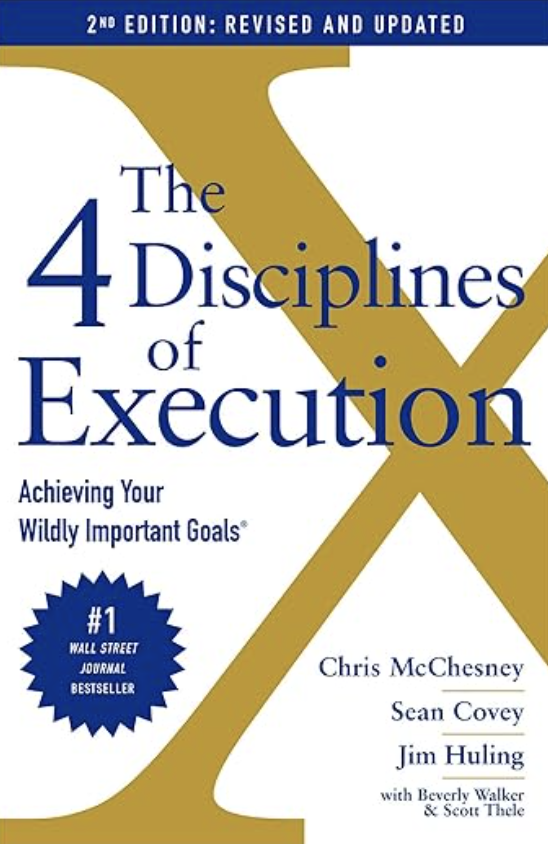“Execution starts with focus.”
The Whirlwind
• Description: The whirlwind represents the urgent day-to-day activities and tasks that consume time and energy within an organization. These are the routine operations necessary to keep the business running but can often distract from achieving more strategic, long-term goals.
• Impact: If not managed properly, the whirlwind can prevent teams from focusing on and executing their Wildly Important Goals (WIGs), as it tends to dominate attention, resources, and time.
• Key Concept: Successfully managing the whirlwind requires striking a balance between maintaining operational needs and prioritizing the activities that drive toward strategic objectives. Achieving this balance is crucial for effective execution of WIGs.
The 4 Disciplines of Execution (4DX) is a powerful methodology developed by Chris McChesney, Sean Covey, and Jim Huling for achieving strategic goals through focused execution. The framework includes four key disciplines:
1. Focus on the Wildly Important Goals (WIGs)
• Description: Instead of trying to improve everything at once, select one or two goals that will make the most significant impact. These are your Wildly Important Goals (WIGs).
• Why It Matters: Concentrating on the most crucial objectives ensures attention and resources are directed where they are needed most, fostering meaningful progress.
2. Act on the Lead Measures
• Description: Identify and act on lead measures—these are the daily or weekly actions that influence the lag measures (end results). Lead measures are manageable and predictive, making them directly controllable.
• Why It Matters: Focusing on lead measures allows you to influence outcomes by managing day-to-day activities that drive success.
3. Keep a Compelling Scoreboard
• Description: Create a visible and easy-to-understand scoreboard that tracks progress on WIGs and lead measures. Everyone should be able to quickly see whether they are winning or losing at any time.
• Why It Matters: A compelling scoreboard motivates and keeps the team engaged, providing immediate feedback and fostering a competitive spirit.
4. Create a Cadence of Accountability
• Description: Establish a regular rhythm of accountability meetings (often weekly) where team members report on their commitments, review progress, and make new commitments to move the lead measures.
• Why It Matters: Regular accountability ensures ongoing focus, provides an opportunity to learn and adjust strategies, and keeps the sense of urgency alive.
How to Apply These Disciplines:
1. Identify Your WIGs: Determine the one or two goals that will make the most significant difference and focus your efforts there.
2. Determine Lead Measures: Break these goals down into specific, actionable steps that can be tracked and measured.
3. Develop a Scoreboard: Create a visual representation of your progress to keep everyone motivated and aware of where they stand.
4. Hold Accountability Meetings: Schedule regular check-ins to report progress, discuss challenges, and set new commitments for the upcoming period.
By applying these four disciplines, organizations can improve their focus and execution on key strategic goals, driving better performance and achieving meaningful results.
Related Quotes
1. “Execution starts with focus.”
2. “Without a clearly defined goal, your team will be pulled in different directions, making execution impossible.”
3. “People don’t feel they lack the time to execute; they feel they lack the time to do so because they don’t know what to do first.”
4. “The enemy of execution is complexity.”
5. “Lead measures are the measures of the high-impact things your team must do to reach the goal.”
6. “Discipline 3: Keep a compelling scoreboard. People play differently when they are keeping score.”
7. “Accountability breeds response-ability.”
8. “You must make keeping a compelling scoreboard a norm for your team, not a one-time event.”
9. “In the end, you’re not going to be judged by the number of tasks you complete, but by your results.”
10. “If you’re not keeping score, you’re just practicing.”
